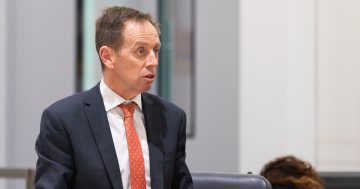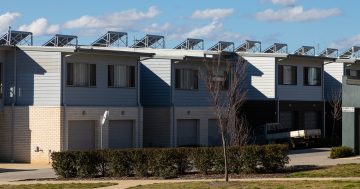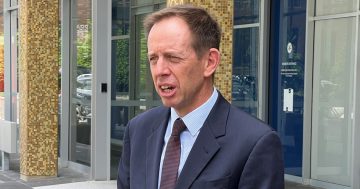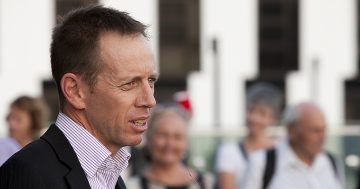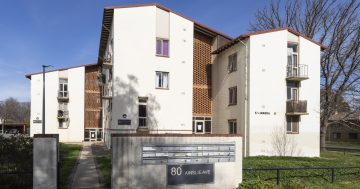
Chief Minister Andrew Barr and Minister for Energy and Emissions Reduction Shane Rattenbury released the Territory’s Zero Emissions Vehicle strategy earlier this year – a key commitment from the PAGA. Photo: Lottie Twyford.
Halfway through the electoral term and only 16 of more than 100 commitments made by Labor and the Greens in their 2020 power-sharing agreement (Parliamentary and Governing Agreement) have been delivered.
Nonetheless, according to its self-assessed report card, the ACT Government says it is on track to deliver the majority of its remaining commitments.
In the two years it has been in power, the government highlighted it had established industrial manslaughter laws, established a Clubs Council, and developed initiatives to increase the uptake of zero-emissions vehicles and solar power.
Progress on four of its 2020 commitments have been delayed, including working with land owners and community organisations to deliver the MyHome proposal in Curtin.
MyHome is intended to provide accommodation to people living with a mental illness. A similar facility operates in Queanbeyan.
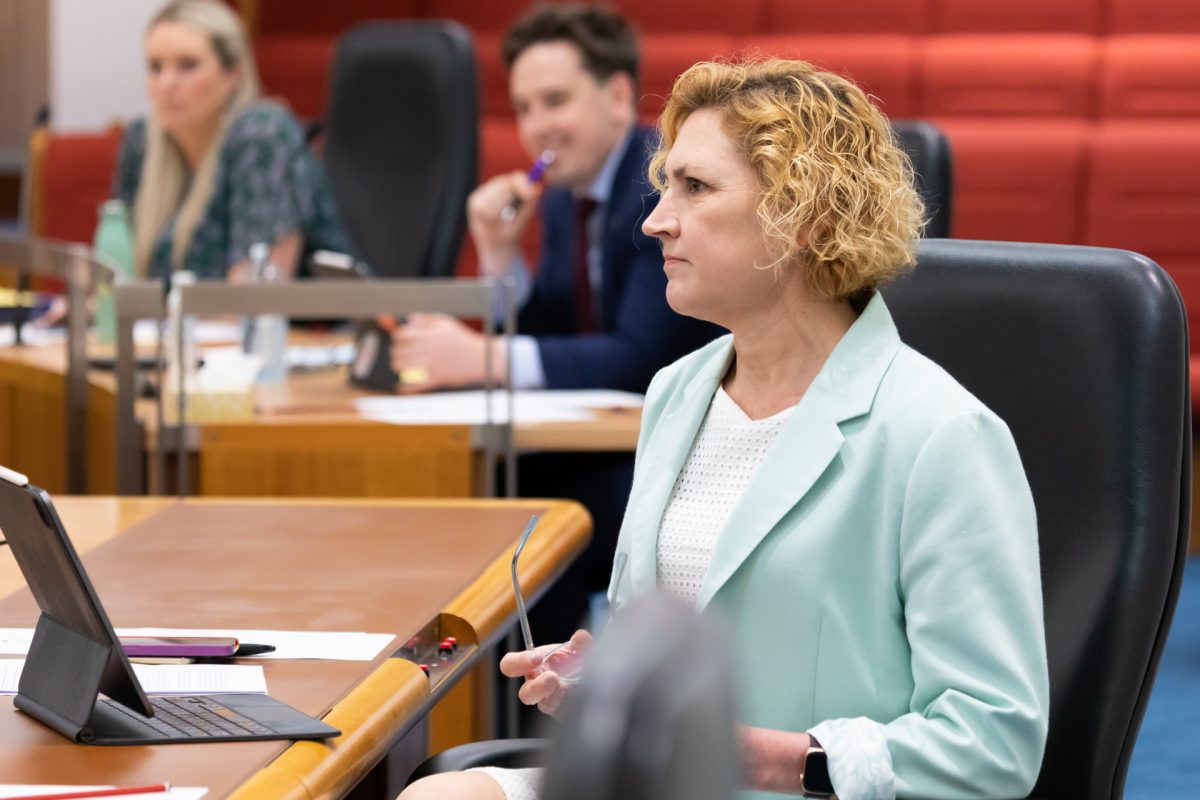
Mental Health Minister Emma Davidson was vague when questioned about progress on the Curtin MyHome proposal. Photo: Michelle Kroll.
The MyHome website attributed delays to COVID-19 and Mental Health Minister Emma Davidson was questioned in budget estimates this year about the project.
She said there had been “a number of conversations” to better understand the model of care required for the facility, but she couldn’t provide a firm timeframe for when a business case would be ready.
Work to ensure ACT laws can respond to modern-day slavery and construction on an affordable build-to-rent housing development next to the Common Ground Gungahlin site have also been delayed.
The government has also delayed seeking advice on locating waste processing facilities in Hume.
Work to reduce the emissions of the ACT’s gas network is also no longer progressing, presumably because the government has instead outlined a plan to transition the Territory off gas entirely by 2045.
Chief Minister Andrew Barr said in a statement that he was pleased to see “good progress” on several initiatives contained in the governing agreement.
“Over the coming 12 months, the government will start consultation on voluntary assisted dying legislation following the removal of the Andrew’s Bill in the Australian Parliament,” Mr Barr said.
“Government members of the Assembly will also play an important role in our community in the lead up to the Voice to Parliament referendum in 2023, with a goal for the ACT to record the highest ‘Yes’ vote in the country.”
The Chief Minister highlighted the government’s progress on early-learning access for three-year-old children, regulations to protect tradespeople from silica dust and work on sexual assault reform by amending legislation.
Attorney-General and ACT Greens Leader Shane Rattenbury said the Greens were proud to be delivering on the commitments made in 2020.
He highlighted the release of a plan to transition from fossil fuel gas and a strategy to phase out internal combustion engine vehicles as two key commitments from the Parliamentary Agreement that had been realised.
“I’m also really pleased that this year we opened Australia’s first fixed pill testing site here in Canberra as part of this government’s commitment to harm reduction,” Mr Rattenbury said.
The two parties have publicly split over issues including public funding of horse racing, defence industry support and recent planning reforms.
The next Territory election is set for 2024.












